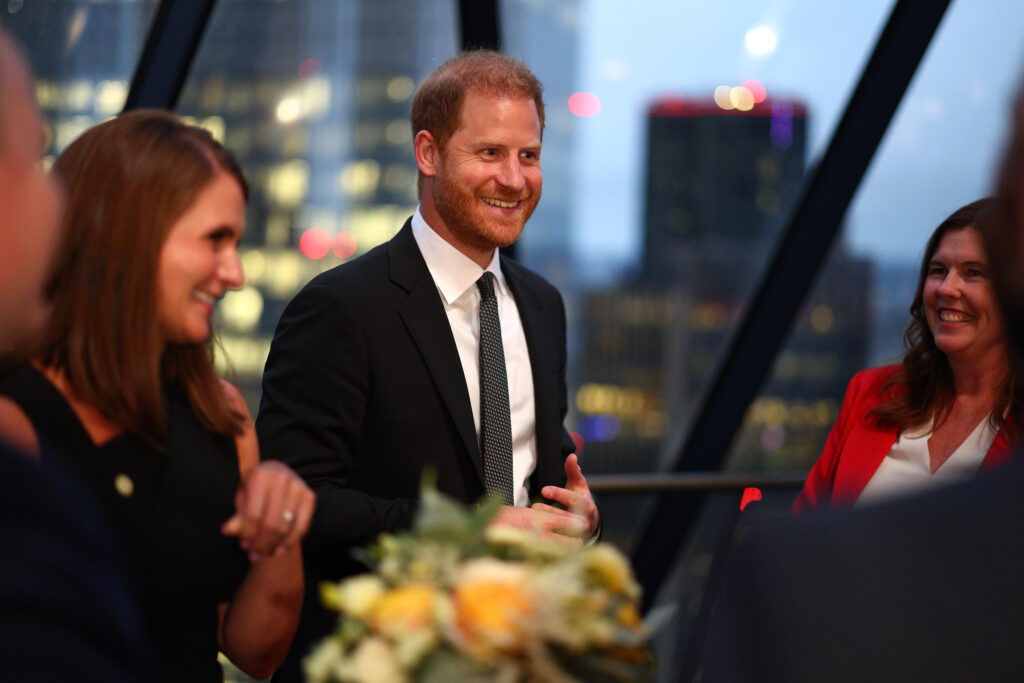The Invictus Games Horizons event brought together supporters, partners, and champions of the wounded warrior community to celebrate a decade of achievements while setting an ambitious course for the future. The evening highlighted how Invictus has evolved from a sporting event into a global movement that changes lives, perceptions, and entire systems of support for service personnel.
A Decade of Remarkable Growth
Ten years since its inception, the Invictus Games has achieved milestones that seemed impossible at the outset. What began with 13 countries and over 400 competitors at the inaugural London 2014 Games has grown into a truly global community. Twenty three nations participated in the most recent Vancouver Whistler 2025 Games with 534 competitors, representing wounded, injured, and sick service personnel from every inhabited continent.
The movement now encompasses innovative developments like Vancouver Whistler’s pioneering hybrid winter Games and Germany’s first-ever Veterans Day. Perhaps most impressively, Nigeria became the first African country in history to join the Invictus Games when they debuted at Düsseldorf 2023. Its national programme has flourished in just three years, complete with an Armed Forces Invictus Centre being built in Abuja, opening the door for continental expansion across Africa.
These achievements demonstrate Invictus’s unique ability to serve as a catalyst for change. While the Games provide the initial spark, it’s the leadership of local communities and the determination of service personnel themselves that sustain and expand the impact.
Ukraine: A Testament to Urgent Need
The recent visit to Ukraine has underscored the vital importance of Invictus’s mission right now as the scale of need is staggering and unprecedented. Ukraine is facing upward of 20,000 military amputees, with German officials estimating between 30,000 and 50,000 Ukrainian amputees overall as a result of the conflict. An estimated 300 new amputees are created every day, and by the end of this year, there could be some 50,000 Ukrainians in need of prosthetics.
Europe has experienced nothing like it since World War I, and the United States not since the Civil War. This underscores that new cohorts of wounded, injured, and sick service personnel are in need of exactly the kind of support and recovery pathways that the Invictus model provides in addressing trauma and facilitating recovery.
Beyond Competition: A Movement for Unity
The Horizons event emphasized that Invictus represents something far more significant than sporting achievement. In a world where conflicts continue to rage and divisions seem to deepen, the Invictus community stands as a powerful counter-narrative. The movement proves that unity is not just possible but formidable, demonstrating that bonds of courage, respect, and humanity transcend political differences, backgrounds, and nationalities.
Personal Stories of Transformation
The event featured a powerful discussion facilitated by the Duke with three key members of the Invictus Movement who had recently visited Ukraine together. As their friend of a decade and the one who took them to Ukraine, Josh Boggi, JJ Chalmers, and David Wiseman each witnessed firsthand the profound impact of seeing the urgent need there, then shared their personal recovery journeys and reflected on how Invictus has shaped their lives.
Josh’s story is one of extraordinary resilience. He has nearly died three times during his recovery journey, which began after an IED explosion during his third tour of Afghanistan. He spoke about how sport played a crucial role not just in his physical rehabilitation, but in giving him purpose and hope during the darkest moments when survival itself was uncertain. His transformation from a critically wounded soldier to an inspiring advocate demonstrates the life-changing power of the Invictus approach.
JJ, recognized by many for his excellent performance on Strictly Come Dancing, discussed his story of post-traumatic growth and how being part of the Invictus community and serving as a Trustee of the IGF shaped his recovery journey. His visibility has helped change perceptions about what wounded veterans can achieve, showing millions that injury doesn’t define limitation.
David, who continues to carry the bullet in his chest that ended his military career, has dedicated his life to the recovery and rehabilitation of fellow service members. His reflection on our recent Ukraine visit and his ongoing commitment to supporting others exemplifies the spirit that drives the Invictus movement forward. Seeing him connect with Ukrainian veterans, sharing experiences across language barriers through the universal language of recovery, was deeply moving.
Strategic Vision for the Next Decade
The evening outlined a clear strategic direction for Invictus’s continued expansion. The focus will be on reaching areas where need is greatest while strengthening the international community already established. The goal extends beyond individual recovery to driving systemic change, ensuring that wounded, injured, and sick service personnel everywhere can access recovery through sport, rehabilitation, and community support.
Particularly exciting is the potential for expansion across Africa. Following presentations at the African Union, Chiefs of Defence from across the continent have been encouraged to follow Nigeria’s example and join the movement. The vision includes Invictus communities spanning the entire African continent and beyond.
A Call for Continued Partnership
The Horizons event served as both celebration and rallying cry. As conflicts continue worldwide and the need for support grows, Invictus stands ready to expand its impact. While acknowledging the remarkable achievements of the first decade—from 13 nations in 2014 to a record-setting 23 nations in 2025—the growing global need requires an expanded response. The numbers from Ukraine alone demonstrate this urgency.
This is just the beginning of what the Invictus Movement can accomplish when communities, nations, and individuals unite behind wounded warriors seeking recovery and purpose. Recognizing the bonds between Josh, JJ, and David, the Ukrainian veterans, and across the entire global Invictus family, the Duke stated: “Invictus is not just about the Games. It is about showing the best of humanity, about proving that there is no wound – physical or invisible – that cannot be met with strength, with dignity, and with hope.”
Getty Images for the Invictus Games Foundation
